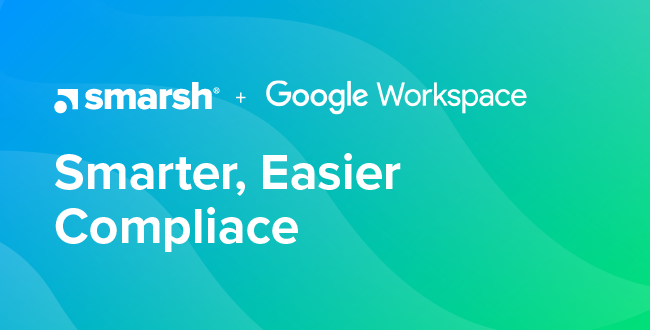Top 5 Questions to Ask When Choosing a Public Records Archiving Solution
Citizens, reporters, watchdog organizations, legal representatives and other constituent groups have strong demands for government transparency, efficiency and spending. Public agencies must be prepared to provide detailed, comprehensive public records in response to investigations and records requests. This includes all employee communications related to government business.
Workplace communications are increasingly — and now sometimes solely — taking place on digital platforms and various devices. That is why so many local, state and federal agencies are investing in technology solutions that are designed to meet the archiving needs of today and tomorrow.
To help public agencies understand what is needed in their next public records archiving platform, here are five questions they should consider.
1. Which public communication records must be saved?
It’s easy to forget how quickly archived communication records can accumulate — especially with the growing permittance of electronic messaging tools. In addition to emails, agencies need to also capture and archive these business-related communications:
- SMS/MMS text messages
- Social media
- Chat messages (private chats and group chats)
- Collaboration files and metadata (joins/leaves, edits/deletes)
Agencies must consider how these messages are stored and retrieved. For example, the format these records are saved in can have a major impact on how quickly and completely public records requests or legal inquiries can be fulfilled. Some archiving platforms flatten and convert electronic message records into email, removing critical contextual information. Look for a solution that preserves communications data in its native format.
2. Do you need separate archives for different content types?
Some government agencies use multiple archives to store different content types. But as those channels evolve and data accumulates, it can become unwieldy. Having communications records in so many disparate locations puts a heavy strain on the IT, legal and records management departments.
Archiving platforms should capture and store all data from all modern communications channels approved for official business. Then records teams, attorneys and human resource staff don’t have to track down IT to search multiple servers, or chase down individuals for copies of text messages, email or social media communications.
Consolidating to a single, comprehensive repository also makes it easier to capture conversations in their entirety as they move organically from one channel to another. Capturing and storing interactions that happen across text, email, chat and other channels helps paint a complete picture. Having them in the same place makes exporting and completing records requests more efficient and cost-effective.
3. Can you capture content from company-issued mobile devices and employee devices?
In the era of mixed-device environments that can include both organization-issued mobile devices and personal devices, it’s important for a public records management software to be able to automatically capture work-related communications no matter who owns the hardware.
If security is a concern, offering agency-issued phones has the benefit of allowing you to mandate passcodes, install your own firewall or anti-virus software and safely transfer devices when someone leaves. With bring-your-own-device (BYOD) policies, employees use their own phones, and you can install containerization or Electronic Device Management solutions over the top, to capture only business-related communications.
Do a cost-benefit analysis to decide which option, or a combination of both, works for your agency. The right technology partner can give your agency more flexibility by helping to capture and archive all mobile communications data. Whatever policy you choose, make sure to train employees on your mobile policies to ensure compliance, and avoid headaches when information is requested.
4. How and where is the archived data stored? Will it be secure?
It’s important for government agencies to understand how and where archived data is stored so they can be assured that their communications data is complete and secure. The right archiving solution will have flexible deployment options to meet an agency’s data requirements. Common deployment options include on-premises capture, cloud-based capture or a hybrid solution.
No matter which option suits your agency best, security should be an integral part of the conversation. Data hacks and leaks are a dangerous reality for agencies at all levels of government. That’s why it’s important for an archiving solution with enterprise-grade security that is designed to protect government data.
5. Will you be able to produce public records request content on-demand?
When it’s time to respond to a records request or investigation, you’ll need the capability to respond comprehensively and quickly. Electronic records need to be stored in an immutable and compliant format for as long as the retention schedule requires.
Public agencies should use an archiving solution that automatically indexes fully threaded conversations in their original format, to preserve data integrity and give full context to the interaction. Then when someone has to retrieve that information, they should be able to search by person, message type or keywords to find what they need more easily.
Understand what your agency needs
Knowing your agency’s needs will help you identify the archiving platform that will best support your communication capture and retention requirements. Failure to maintain and secure complete and accurate records will leave agencies vulnerable to fines, legal action and public mistrust.
For tips on how to afford a modern archiving solution, take a look at this guide.
More on Smarsh for government, here.
Share this post!
Smarsh Blog
Our internal subject matter experts and our network of external industry experts are featured with insights into the technology and industry trends that affect your electronic communications compliance initiatives. Sign up to benefit from their deep understanding, tips and best practices regarding how your company can manage compliance risk while unlocking the business value of your communications data.




Subscribe to the Smarsh Blog Digest
Subscribe to receive a monthly digest of articles exploring regulatory updates, news, trends and best practices in electronic communications capture and archiving.
Smarsh handles information you submit to Smarsh in accordance with its Privacy Policy. By clicking "submit", you consent to Smarsh processing your information and storing it in accordance with the Privacy Policy and agree to receive communications from Smarsh and its third-party partners regarding products and services that may be of interest to you. You may withdraw your consent at any time by emailing privacy@smarsh.com.
FOLLOW US